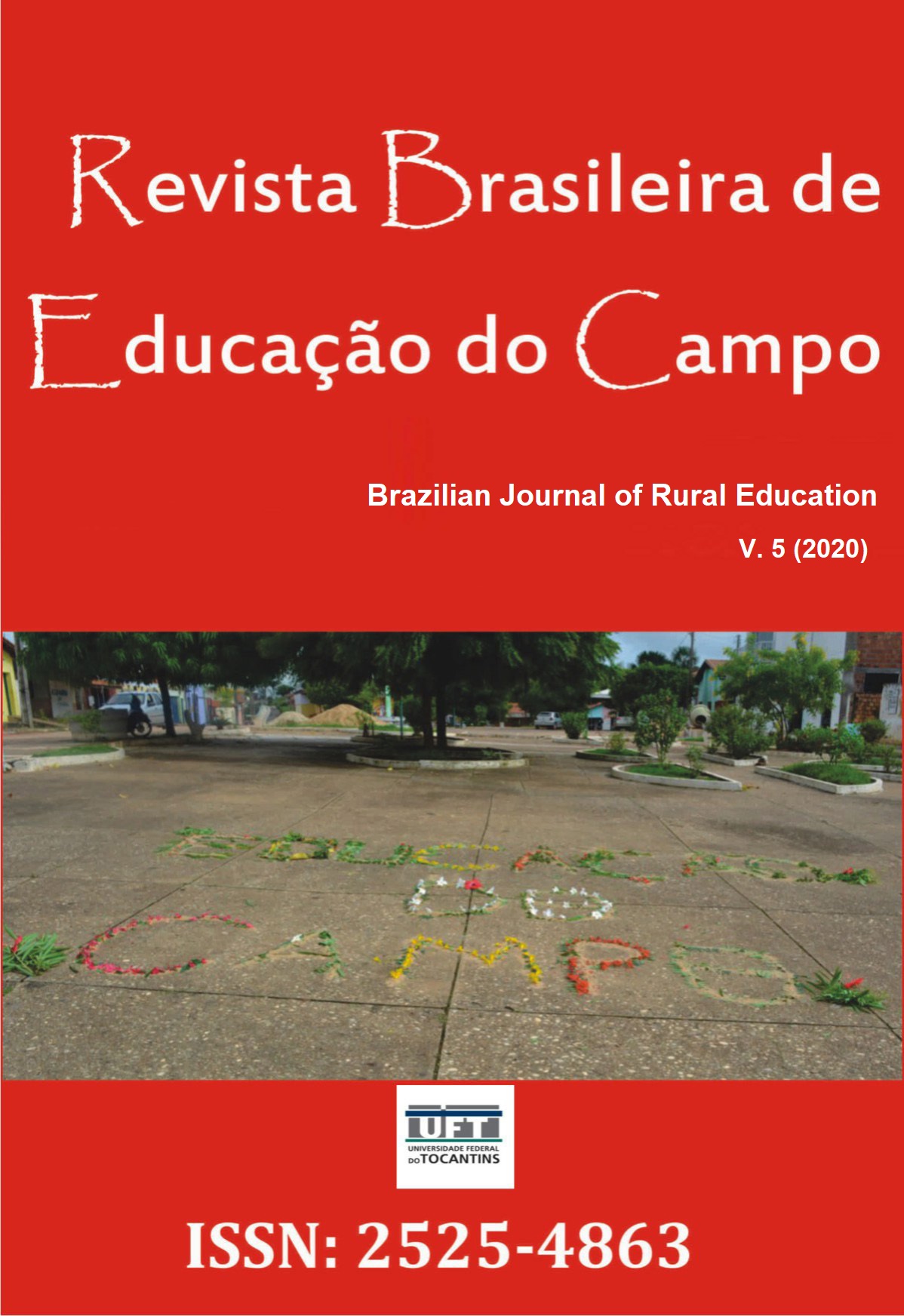Rural Education and its specificities: a study of the Pedagogical Political Project of a Rural School in the municipality of Londrina-PR
DOI :
https://doi.org/10.20873/uft.rbec.e9938Résumé
ABSTRACT. Education gains importance in the constitution of society, influencing economic and power relations and, in the humanistic dimension, it contributes to the incorporation of ethical and sensitive principles, expanding a more inclusive and emancipatory worldview. However, respect for diversity is still a challenge and there is a need for school institutions whose projects operate in different perspectives, among them in the countryside. This article aims to present aspects of rural education, understanding its peculiarities and correlating them to the Pedagogical Political Project of a country school, unveiling what is established (or not) as the purpose of a rural pedagogical practice. The methodology is based on a qualitative analysis, with a bibliographic and documentary approach. The results show a conception of rural education that is attentive to the needs of the rural community and that the pedagogical project of the investigated College, in general, converges with this conception. It was concluded that school education in the countryside needs to ensure specificities in its pedagogical project, respecting practices typical of the daily life of these rural communities and, thus, carrying out a humanistic and emancipatory process of the subjects.
Téléchargements
Références
Afonso, A. (2003). Avaliar a escola e a gestão escolar: elementos para uma reflexão crítica. In Esteban, M. T. (Org.). Escola, currículo e avaliação (pp. 38-56). São Paulo: Cortez.
Apple, M. (2006). Ideologia e currículo. São Paulo: Brasiliense.
Arroyo, M., Caldart, R., & Molina, M. C. (2011). Por uma educação do campo. Rio de Janeiro: Vozes.
Caldart, R. S. (2003). A escola do campo em movimento. Currículo sem Fronteiras, 3(1), 60-81.
Calazans, M. J. C. (1993). Para compreender a educação do estado no meio rural: traços de uma trajetória. In Therrien, J., & Damasceno, M. N. (Orgs.). Educação e escola no campo (pp. 15-51). Papirus, Campinas.
Caldart, R. S. (2012). Sobre educação do campo. In Anais do III Seminário do Programa Nacional de Educação na Reforma Agrária (PRONERA). Luziânia, Goiás.
Freitas, L. C. (2005). Qualidade negociada: avaliação e contra-regulação na escola pública. Educação e Sociedade. Cadernos CEDES, 26(92), 911-933. https://doi.org/10.1590/S0101-73302005000300010
Pires, Â. M. (2012). Educação do campo como direito humano. São Paulo: Cortez.
Sacristán, J. G. (2000). O currículo: uma reflexão sobre a prática. Porto Alegre: Artmed.
Souza, M. A. (2008). Educação do campo: políticas, práticas pedagógicas e produção científica. Educação & Sociedade, 29(105), 1089-1111. https://doi.org/10.1590/S0101-73302008000400008
Veiga, I. P. A. (1995). Projeto político-pedagógico da escola: uma construção possível. Campinas: Papirus.
Venere, M. R., & Velanga, C. T. (2008). A criança indígena e a educação infantil: as complexas relações entre a cultura e a escola na cidade. Revista Tellus, 15, 175-191. https://doi.org/10.20435/tellus.v0i15.167
Téléchargements
Publié-e
Comment citer
Numéro
Rubrique
Licence
Proposal for Copyright Notice Creative Commons
1. Policy Proposal to Open Access Journals
Authors who publish with this journal agree to the following terms:
A. Authors retain copyright and grant the journal right of first publication with the work simultaneously licensed under the Creative Commons Attribution License that allows sharing the work with recognition of its initial publication in this journal.
B. Authors are able to take on additional contracts separately, non-exclusive distribution of the version of the paper published in this journal (ex .: publish in institutional repository or as a book), with an acknowledgment of its initial publication in this journal.
C. Authors are permitted and encouraged to post their work online (eg .: in institutional repositories or on their website) at any point before or during the editorial process, as it can lead to productive exchanges, as well as increase the impact and the citation of published work (See the Effect of Open Access).














